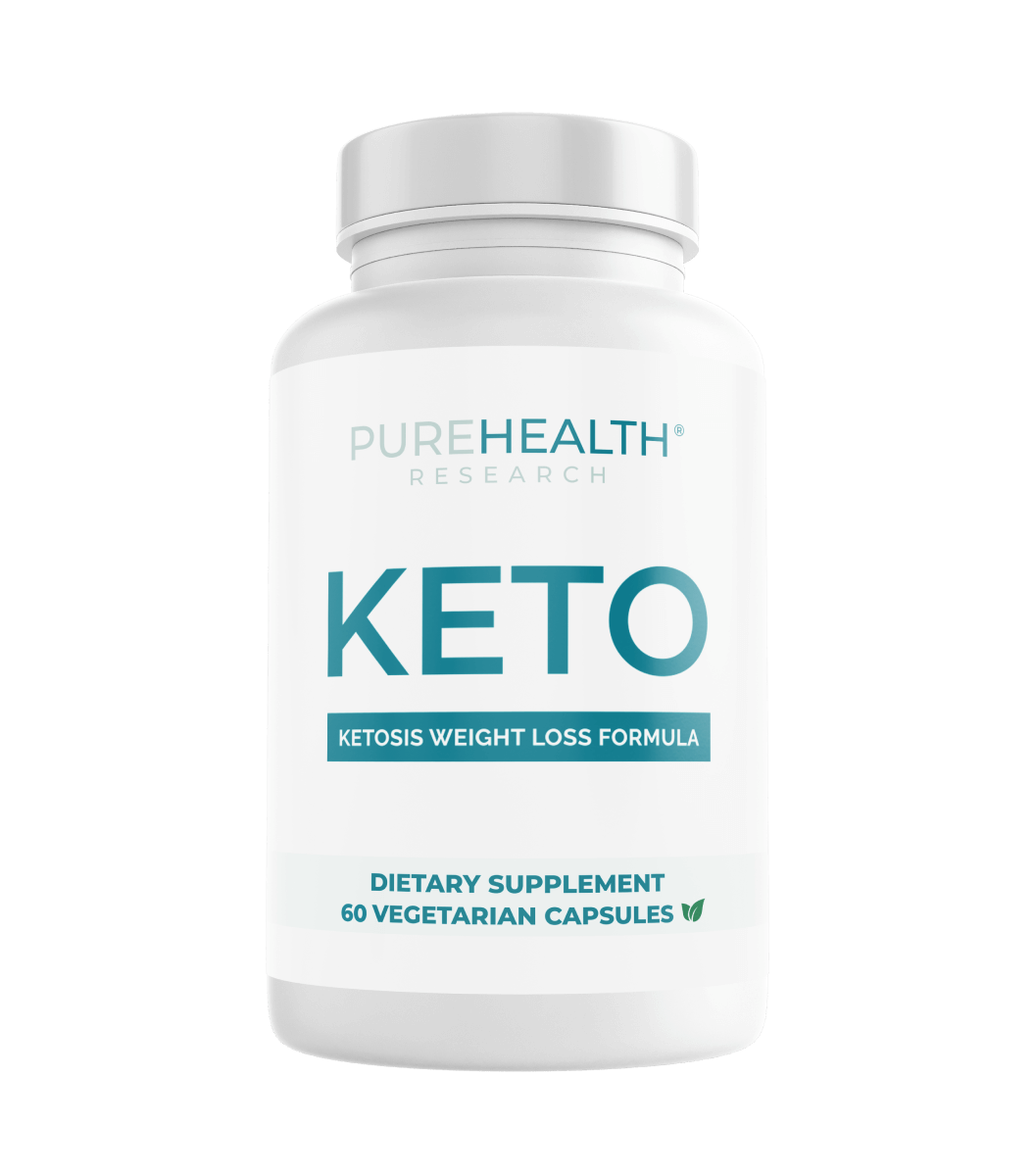Intermittent Fasting vs Keto – The Diet Dilemma Solved
Medically reviewed by our experts


The intermittent fasting vs keto diet debate has captured the attention of health-conscious individuals seeking sustainable weight loss solutions. These dietary approaches have gained widespread popularity, with enthusiasts swearing by their effectiveness in achieving weight loss, better health, and enhanced well-being.
In this blog post, we will delve into the intermittent fasting vs. keto debate, aiming to provide clarity on which path might be the right one for you. This exploration is particularly pertinent for older adults who seek sustainable and science-backed dietary choices to maintain their vitality and health.
Our journey through the world of intermittent fasting and the keto diet will be guided by scientific evidence, as we assess their merits and drawbacks. Whether you’re a seasoned pro or just dipping your toes into the dieting waters, understanding the nuances of these two approaches is crucial for informed decision-making regarding your health and well-being.
So, let’s embark on this enlightening journey as we weigh the pros and cons of intermittent fasting and the keto diet, decipher the science behind them, and discover the potential benefits they offer for older adults looking to lead healthier lives.
Keto Diet Explained

The keto diet, short for ketogenic diet, is a low-carb, high-fat dietary regimen designed to transform the way our bodies derive energy. At its core, the keto diet is all about pushing our metabolism into a state known as ketosis. In essence, ketosis is a metabolic process where the body shifts its primary fuel source from carbohydrates to fat. When we consume fewer carbohydrates, our liver begins to break down stored fat into molecules called ketones, which then become the body’s primary source of energy. This shift in fuel source is what sets the keto diet apart, and it’s believed to have a range of potential health benefits.
Benefits of Keto
The keto diet offers a range of potential benefits that can significantly impact overall health and well-being. It’s important to note that individual results may vary, but many individuals have reported significant weight loss while following this diet. Studies have shown that the keto diet can be effective in promoting fat loss due to its ability to shift the body into ketosis, where it relies on stored fat for energy.
In addition, the diet may have a positive impact on blood sugar levels, which is especially important for older adults who may be at risk for developing a type II blood sugar disorder. While more research is needed, some studies suggest that the keto diet could potentially promote heart health by reducing risk factors such as triglycerides and increasing HDL cholesterol levels. Therefore, before starting any diet, it is strongly advisable to consult with a qualified healthcare professional.
Keto Diet Challenges
The Keto Diet shows promise but comes with challenges, notably dietary restrictions on carbohydrates found in staples like bread and fruits. Meal planning becomes complex, and the “keto flu” introduces short-term side effects such as fatigue and headaches as the body adjusts to burning fat for fuel.
Additionally, most studies have focused on males, leaving a knowledge gap regarding its effects on females. Transitioning to the keto diet involves overcoming challenges, including the discomfort of the “keto flu.”
Additionally, Dr. Holly, a renowned expert, endorses supplements for weight loss and enhancing the keto journey. It complements the diet’s stringent restrictions, ensuring nutritional balance and overall well-being.
PureHealth Research Keto Formula is recommended for those starting the keto diet, offering a smoother transition and helping manage initial hurdles. However, consulting a healthcare professional or dietitian before incorporating supplements is crucial to align with individual goals and maximize safety. Careful planning and personalized support are essential for successfully embracing the keto diet.
What Is Intermittent Fasting

Intermittent fasting, often abbreviated as IF, is an eating pattern that revolves around alternating cycles of fasting and eating. Unlike traditional diets that focus on what you eat, IF concentrates on when you eat. There are various intermittent fasting methods, but a common one is the 16/8 method, where you fast for 16 hours and limit your eating window to 8 hours each day.
This approach allows your body to tap into stored energy reserves during the fasting period, potentially leading to weight loss. For those seeking an adaptable dietary strategy that aligns with their lifestyle and health goals, low carb intermittent fasting can be an appealing option.
Advantages of Intermittent Fasting
Intermittent fasting has garnered attention for its array of potential benefits. Weight management is a notable advantage, as it often leads to reduced calorie intake, making it an effective tool for those seeking to shed extra pounds. Additionally, studies have suggested that intermittent fasting may help in reducing pro-inflammatory overactivity, a key contributor to various chronic diseases.
Furthermore, IF has piqued interest in the realm of longevity, with research in animals indicating that it might promote cellular regeneration and enhance longevity. While the evidence is still evolving, the adaptability and positive outcomes associated with intermittent fasting make it a compelling option for those looking to improve their overall health and well-being.
Challenges of Intermittent Fasting
Intermittent fasting, while offering a range of benefits, is not without its challenges. One of the most common difficulties is dealing with hunger pangs, especially during the initial stages of adjusting to the new eating schedule. It can be mentally and physically demanding to abstain from food during fasting hours. Moreover, finding the right fasting window that aligns with one’s daily routine can be a puzzle. The key to navigating these challenges lies in listening to your body and being flexible with your fasting schedule.
Some individuals might find it easier to start with shorter fasting periods and gradually extend them as their bodies adapt. Staying well-hydrated and choosing nutrient-dense foods during eating windows can also help mitigate these challenges. Remember, intermittent fasting is a customizable approach, and the key is to make it work for you.
Keto vs Intermittent Fasting Differences

When it comes to intermittent fasting vs keto diet comparison, there are notable distinctions in their approaches to weight loss and health:
Keto Diet
- Focuses on altering the macronutrient composition, emphasizing low carbs and high fats.
- Shifts the body into ketosis, where it primarily burns fat for energy.
- Restricts the types of foods consumed, particularly carbohydrate-rich options.
- Can be effective for weight loss due to reduced calorie intake and fat utilization.
Intermittent Fasting
- Centers around timing, specifying when to eat and fast.
- Allows for a more flexible dietary composition, but encourages mindful food choices.
- Promotes calorie restriction through restricted eating windows.
- Induces intermittent periods of fasting, potentially leading to weight loss.
In essence, Keto primarily manipulates macronutrients, emphasizing fat consumption, while intermittent fasting focuses on the timing of meals to create calorie deficits. Both have their unique mechanisms and potential benefits, making the choice between them a matter of personal preference and compatibility with individual lifestyles.
Nutritional Considerations
When considering intermittent fasting vs keto diet, maintaining balanced nutrition is crucial for long-term health and success. While these diets can offer benefits, they may also carry the risk of nutrient deficiencies if not carefully planned. In the keto diet, the emphasis on fats can sometimes lead to inadequate intake of essential nutrients like fiber, vitamins, and minerals found in carb-rich foods.
On the other hand, intermittent fasting’s restricted eating windows should still encompass a variety of nutrient-dense foods to avoid potential deficiencies. To navigate these nutritional considerations effectively, it’s wise to consult with a healthcare provider or registered dietitian. They can provide personalized guidance, helping you create a dietary plan that aligns with your health goals while ensuring you receive all the necessary nutrients.
Psychology of Dieting

The psychology of dieting is a crucial aspect often underestimated in the quest for better health. Dieting goes beyond just physical changes; it delves into motivation, mindset, and emotional resilience. Staying motivated can be challenging, especially when facing setbacks or slow progress. To maintain a positive outlook, setting realistic goals, celebrating small victories, and surrounding oneself with supportive communities can be immensely helpful.
Mindset plays a pivotal role – shifting focus from deprivation to nourishment and self-improvement can make the journey more sustainable. Acknowledging and managing emotional triggers that lead to overeating or unhealthy choices is equally essential. Ultimately, understanding the psychological aspects of dieting empowers individuals to cultivate lasting, positive changes in their relationship with food and overall well-being.
Diet Adherence and Sustainability
Diet adherence is a critical factor in achieving long-term success. Choosing a diet that harmonizes with your lifestyle and personal preferences is essential for maintaining commitment over time. Habit formation is pivotal in this journey, with gradual changes and consistent routines making dietary adjustments more sustainable.
When selecting a diet, it’s beneficial to opt for one that aligns with your values and offers flexibility, as these factors can significantly improve the likelihood of establishing and sustaining lasting dietary habits for the future.
Combining Keto and Intermittent Fasting
Combining the keto diet with intermittent fasting is feasible and may offer synergistic benefits. However, it’s essential to approach this combination thoughtfully, particularly for older adults. Consult with a healthcare provider or dietitian to ensure safety and effectiveness.
Balancing macronutrients, planning meals, and monitoring your body’s response is key to achieving desired results and understanding how to stay in ketosis after fasting. While the potential benefits are intriguing, personalized guidance is crucial to optimize outcomes and address any unique health considerations.
Addressing Common Concerns
Common concerns about diets often revolve around their impact on heart health, arterial pressure, and bone health. Evidence suggests that while the keto diet may initially increase certain markers associated with cardiovascular risk, it often supports overall heart health.
Intermittent fasting has shown potential in reducing arterial pressure and enhancing cardiovascular well-being. As for bone health, ensuring adequate calcium and vitamin D intake can help mitigate potential risks associated with these dietary patterns.
Expert Insights on Future Diet Trends
As we delve into the future of dieting, insights from renowned nutrition experts offer valuable perspectives on how current trends like keto and intermittent fasting may evolve. An editorial published in Nutrients recently suggested that the ketogenic diet holds potential as a personalized treatment strategy in the emerging era of personalized medicine.
Additionally, we can anticipate gaining further valuable insights into the diverse applications and underlying biological mechanisms of the ketogenic diet in the years to come. However, a comprehensive interdisciplinary research effort is essential to fully comprehend and harness the potential of the ketogenic diet to transform modern medicine.
Moreover, according to a clinical study in Nature Reviews: Endocrinology, intermediate fasting is a promising strategy for managing weight and may have other health benefits in the future. However, more research is needed to determine the optimal IF regimen for different individuals and to assess the long-term safety and efficacy of IF.
These expert insights underscore the significance of staying receptive to evolving dietary guidelines and being open to personalized nutritional approaches. As we move forward, it’s clear that the future of dieting will be marked by a deeper understanding of individual variability and the incorporation of cutting-edge research to optimize health and well-being.
Choosing the Right Diet for You
Selecting the ideal diet between keto and intermittent fasting should be a thoughtful process based on your individual health status, lifestyle, and personal preferences. Consider your goals and values while assessing which diet aligns best with them. It’s strongly recommended to consult healthcare professionals or registered dietitians for personalized guidance. They can evaluate your unique needs and provide tailored recommendations to ensure that your chosen dietary approach supports your long-term well-being effectively.
Conclusion and Additional Resources
In conclusion, keto emphasizes a low-carb, high-fat approach that drives the body into ketosis, while intermittent fasting focuses on specific eating and fasting windows to regulate metabolism. Both strategies offer unique benefits, but their effectiveness depends on individual needs and lifestyles. Considering factors like nutrition, psychological well-being, and expert guidance is essential for making informed decisions. Ultimately, personalized nutrition is the key to long-term success, ensuring that dietary choices align with health goals and sustainable habits.
Neither keto nor intermittent fasting is inherently better – it depends on individual goals and lifestyle. Keto focuses on low carbs, high fats, and ketosis, which can help with fat loss and sustained energy levels. Intermittent fasting prioritizes when you eat rather than what you eat, helping regulate metabolism and reduce calorie intake. Some people combine both for enhanced results, but the best choice depends on personal preferences and health needs.
A 16-hour fast may help initiate ketosis, but it typically takes longer – usually between 24 to 72 hours – depending on your carb intake and metabolic state. Fasting lowers insulin levels and depletes glycogen stores, encouraging fat-burning. However, if you consume too many carbs during your eating window, ketosis may not fully develop.
Yes, you can lose weight with intermittent fasting without following keto. Fasting naturally reduces calorie intake, improves insulin sensitivity, and supports fat loss. While keto may accelerate fat-burning by keeping insulin low, weight loss is ultimately driven by a calorie deficit and healthy eating habits.
Popular Articles
Advertisement. This site offers health, wellness, fitness and nutritional information and is designed for educational purposes only. You should not rely on this information as a substitute for, nor does it replace, professional medical advice, diagnosis, or treatment. If you have any concerns or questions about your health, you should always consult with a physician or other health-care professional. Do not disregard, avoid or delay obtaining medical or health related advice from your health-care professional because of something you may have read on this site. The use of any information provided on this site is solely at your own risk.

















